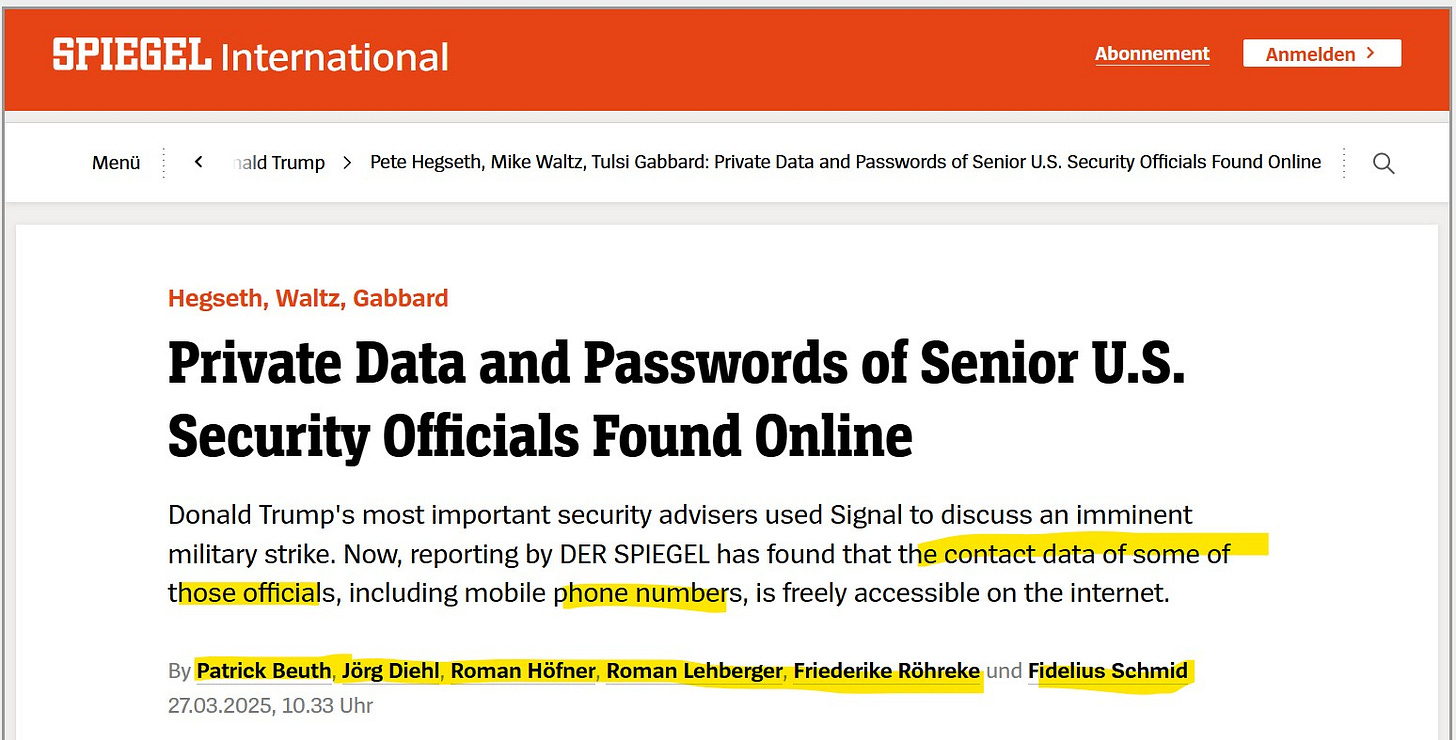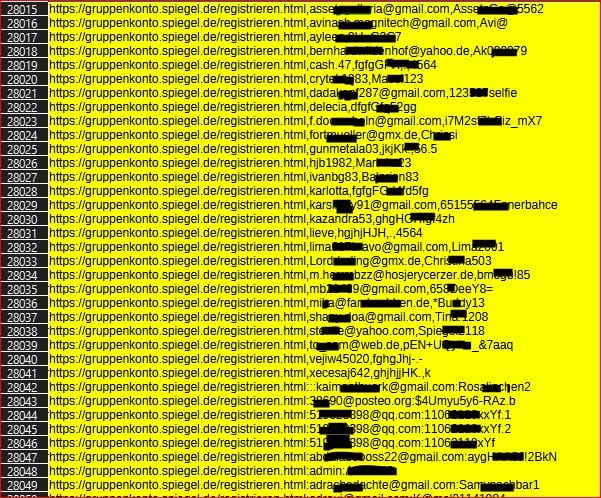DER SPIEGEL: A 'CHEAP-TRICK-HITPIECE' ON TRUMP'S CABINET, BACKFIRES BEAUTIFULLY!
DER SPIEGEL LEFT WITH EGG ON IT'S FACE, AFTER A MAJOR SECURITY LAPSE REVEALS 10'S OF THOUSANDS OF STAFF AND READER PII RECORDS.
In a “striking revelation”, German news magazine DER SPIEGEL reported that the private data of senior U.S. security officials, including mobile phone numbers, email addresses, and even passwords, were readily accessible online. This disclosure, according to DER SPIEGEL, has raised significant concerns about digital security practices at the highest levels of government.
However, an ironic twist emerges when scrutinizing DER SPIEGEL's own digital infrastructure.
Despite its investigative “prowess” in uncovering security lapses elsewhere, DER SPIEGEL's website appears to be riddled with vulnerabilities that could potentially expose tens of thousands of Personally Identifiable Information (PII) records.
These records enabled us to find more PII snippets online —from their very own Washington Bureau Chief, their Berlin based CEO, AND the six journalists that wrote the “hit-piece”! Geniuses!
This situation underscores a broader issue within the realm of digital security: the prevalence of "digital aids"—systems or practices intended to enhance functionality but that inadvertently introduce significant security risks. While DER SPIEGEL has highlighted the shortcomings of others, it is imperative that media organizations also turn the lens inward to assess and fortify their own cybersecurity measures.
The juxtaposition of DER SPIEGEL's reporting on external data breaches against the backdrop of its own website's security flaws serves as a cautionary tale. It emphasizes the necessity for all entities, regardless of their role in disseminating information, to prioritize the safeguarding of personal data. As the digital landscape evolves, so too must the commitment to robust and comprehensive cybersecurity protocols.


Update: The Atlantic's Website Security Concerns, as reported earlier by George News.
Adding to the pattern of media outlets grappling with digital security issues, The Atlantic has recently come under scrutiny. In March 2025, The Atlantic published detailed messages, from U.S. officials discussing military operations in Yemen, an incident referred to as "Signal-gate." This event highlighted significant lapses in operational security within the government.
However, reports have surfaced alleging that The Atlantic's own website may be compromised, potentially exposing many thousands of user email addresses and passwords to the public.
This situation mirrors previous incidents, such as the 2021 unauthorized access of Atlantic Media's servers, which exposed sensitive employee information. These recurring issues underscore the critical need for media organizations to not only report on cybersecurity vulnerabilities but also to ensure the integrity and security of their own digital platforms. (See full story below)






